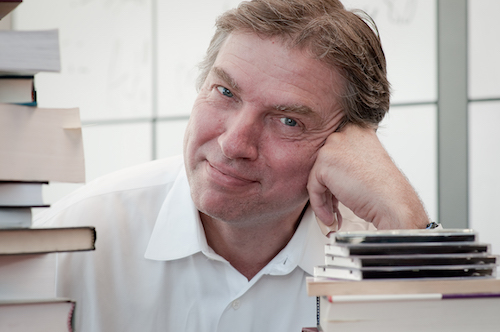Research Symposium: William Jones
 "Information, knowledge and successful aging": William Jones, Research Associate Professor Emeritus, Information School, University of Washington
"Information, knowledge and successful aging": William Jones, Research Associate Professor Emeritus, Information School, University of Washington
To live is to age. Age is a lifetime giver of experiences, knowledge and wisdom. But age takes too. After bringing us to a peak of raw ability, mental and physical, sometime in our late 20’s, age begins to take from the accumulated credits for each. In the normal course of aging, we experience a gradual decline in raw cognitive ability as measured, for example, by tests of short-term working memory capacity and processing speed.
The ultimate, inevitable end to our life story is never in doubt. But a growing body of research provides intriguing, suggestive indicators that we might compensate for and counter declines in raw cognitive ability through methods that better leverage both information “out there” and our accumulated knowledge “in the head”. In an ideal, methods combine so that the declines of age are minimal, and we remain active, engaged and self-reliant up until the very end of our biological lives. What can be done, in the management of our information and, indirectly, in the management of our knowledge to come closer to this ideal of aging?
In this talk, Jones will review research and initiatives that give special focus to the challenges and the opportunities facing healthy older people as they enter what he refers to as the pivotal age group: At or near retirement, empty nesters but still primarily responsible both for their children and possibly for their aging parents as well and then also possibly facing other major changes in life circumstances (e.g., downsizing, changes in marital status, return to school, etc.).
But each of us, no matter our age, has reasons to be interested in successful aging. And we may find that much that is good for older people as they age is good for the rest of us too.
William Jones is a Research Associate Professor Emeritus in the Information School at the University of Washington. He continues to work on the challenges of “Keeping Found Things Found” both as a research topic and in his own life. He is recently interested in the relationships between information, knowledge and successful aging. William has published in the areas of personal information management (PIM), human-computer interaction, information retrieval (search), and human cognition/memory. He wrote the book Keeping Found Things Found: The Study and Practice of Personal Information Management and, more recently, the three-part series, The Future of Personal Information: Part 1: Our Information, Always & Forever, Part 2: Transforming Technologies to Manage Our Information and Part 3: Building a Better World With Our Information. William holds 6 patents relating to search and PIM.
To attend: please email Jennifer Phipps your RSVP, jrphipps@uw.edu
